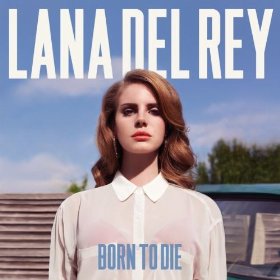
Lana Del Rey
Born to Die
Interscope
It isn’t uncommon for new artists to make moves toward changing themselves in an effort to redefine their persona. Outside of American Idol winners, the changing of a name, hair color and, at times, facial features appears to be as much a part of the music thing as getting an agent. It seems that at some point, becoming the physical representation of a fictitious doppelgänger character created in order to achieve recognition as a musician is how the American Dream has been redefined. Gambling one’s identity on the whims of a fickle public is a hand that’s been played by Lake Placid, New York’s Lizzy Grant (a.k.a. Lana Del Rey) and unfortunately, it may be one she’s already lost.
The release of a two-song EP at the beginning of the year had music bloggers frothing at the mouth for more. “Video Games” and “Blue Jeans” were born as slow jams that rigorously iterated classic themes of love while remaining considerate of the struggle inherent in such a concept. The sacrifice of individuality, adoption of codependence, disillusionment of fairy tale happiness, and the inexplicable desire to retain such a flawed and comfortably predictable existence all shone through. Del Rey’s music is, at times, an acknowledgement of willful naïveté for the sake of affections exchanged – powerless submission to a tall, dark visage dressed like Springsteen: girlhood personified.
The hype machine churned out Lana Del Rey so hard that it was spitting hot bolts like sparkler emissions. Lizzy Grant really had nowhere to go but down by the time her full length, Born to Die, was released. All it really took was a few mixed reviews and a categorically bad performance on Saturday Night Live to have everyone who ever put her name in their mouths contriving a line of defense for her or jumping in the conga line of slander. It happened suddenly, and it was enough to make people question the strength of something we had already convinced ourselves was strong. What previously sounded like Nancy Sinatra swag now smacked more of trust-fund-kid delusions of street cred. Dark, cavernous beats and cleverly interjected samples that juxtaposed Del Rey’s crooning tweeness suddenly seemed more Britney Spears than Portishead. When taken in the context of Born to Die as a whole, the songs and the effort behind them seem altogether more drenched in youth-worship juvenilia focused on mixing the shallow and the trendy more than anyone previously realized.
It wouldn’t be so bad if it weren’t for tracks that so obviously serve as filler. Songs like “Million Dollar Man,” and the aforementioned singles, which embrace more classical, soulful R&B elements, help round out an album with more hits than misses, but “National Anthem” and “This Is What Makes Us Girls,” for example, are obtusely reminiscent of high school dumb – a misplaced perception of cool, addressed with the kind of forlorn fondness that makes one wonder who Del Rey is marketing herself to. If she’s being tongue-in-cheek, that’s fine, but I think that ultimately, my frustration comes from the fact that it’s hard to tell if she’s taking herself seriously or not.
As a happy consumer of art, I feel like honesty is really the only thing that it owes me in return for my patronage, and it’s a quality that is missing somewhere in Born to Die.
Lana Del Rey: http://lanadelrey.com












